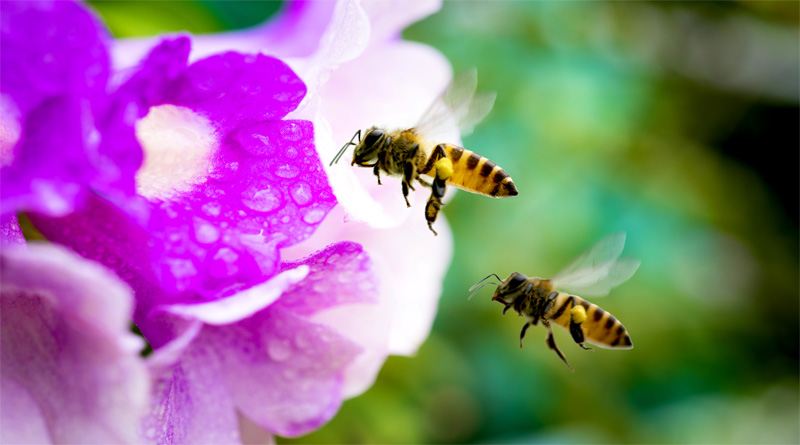May 20th is World Bee Day from now. Here’s why

On May 20th, the bee’s finally had their day . The acknowledgement and celebration came from no less than the United Nations, with the UN declaring 20th May as the world’s first bee day. Every year the UN will use this day to raise awareness about these stripy little pollinators, which are so essential for our environment. The resolution was co-sponsored by the 115 UN member states including USA, Canada, China, Russia, India, Brazil, Argentina, Australia and all the EU states.
The day was created last year by the UN general assembly after Slovenia initiated the idea to focus on bees and their essential role in pollinating the planet. A third of the world’s food production depends on these little creatures and other pollinators. However, due to the increased use of pesticides/ insecticides and intensive farming methods, bees are declining in large numbers all around the world. In fact, beekeepers are petitioning to classify a number of bees as endangered due to the sheer drop in their numbers (currently 7 species of these pollinators have made the endangered species list).
It may seem ridiculous to many to name a day after an “insect”, especially bees because they sting but bees play a very important role in our ecosystem.
Bee’s pollinate more than 170,000 species of plants. 80% of domestic fruits and vegetables require bees to ensure a good harvest. Moreover, every third spoon of food we eat is dependent on bees. These creatures also produce honey and their economic sum is approximately 265 billion euros per year worldwide. In an example of how much of our food is dependent on these creatures, a German supermarket in Hanover emptied all the shelves which contained products as a result of pollination, almost 60% of the shelves in the supermarket were empty.
“Bees play a crucial role in increasing crop yields and promoting food security and nutrition”, said Carla Mucavi, Director of the Food and Agriculture Organisation of the United Nations (FAO) Liaison Office in New York.
Last month the European Unions top court backed an almost complete EU ban on the usage of three insecticides (clothianidin, imidacloprid and thiamethoxam) that have adverse effects on bees and last week an EU member of state upheld this decision by implementing a partial ban on the three insecticides.
So, next you see a bee buzzing around the garden don’t kill it, appreciate it and its contribution to the environment. But, if you’re allergic like me it’ll be in your best interest to just slowly walk away from it, without causing it any harm.
l
(Source: https://en.wikipedia.org/wiki/Bee)
![]()




